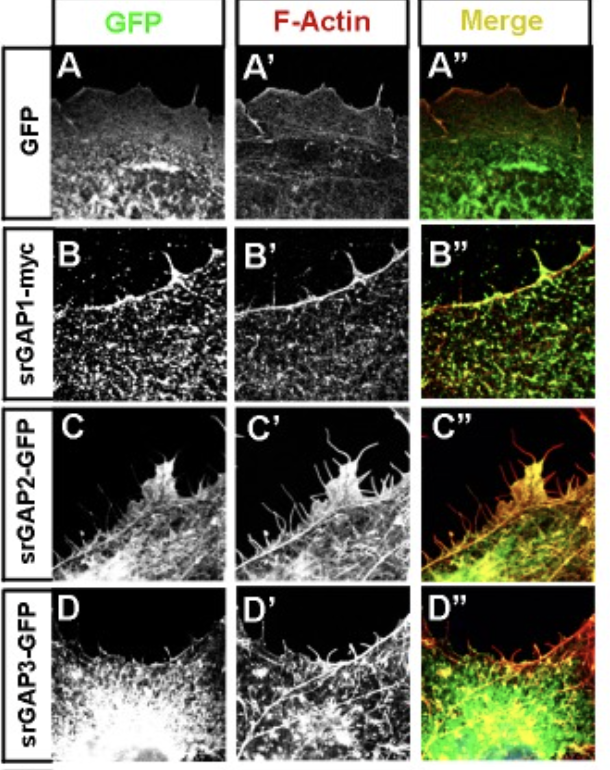Coordination of membrane deformation and cytoskeletal dynamics lies at the heart of many biological processes critical for cell polarity, motility and morphogenesis. We have recently shown that Slit-Robo GTPase-activating protein 2 (srGAP2) regulates neuronal morphogenesis through the ability of its F-BAR domain to regulate membrane deformation and induce filopodia formation. Here, we demonstrate that the F-BAR domains of two closely related family members, srGAP1 and srGAP3 [designated F-BAR(1) and F-BAR(3), respectively] display significantly different membrane deformation properties in non-neuronal COS7 cells and in cortical neurons. F-BAR(3) induces filopodia in both cell types, though less potently than F-BAR(2), whereas F-BAR(1) prevents filopodia formation in cortical neurons and reduces plasma membrane dynamics. These three F-BAR domains can heterodimerize, and they act synergistically towards filopodia induction in COS7 cells. As measured by fluorescence recovery after photobleaching, F-BAR(2) displays faster molecular dynamics than F-BAR(3) and F-BAR(1) at the plasma membrane, which correlates well with its increased potency to induce filopodia. We also show that the molecular dynamic properties of F-BAR(2) at the membrane are partially dependent on F-Actin. Interestingly, acute phosphatidylinositol 4,5-bisphosphate [PtdIns(4,5)P(2)] depletion in cells does not interfere with plasma membrane localization of F-BAR(2), which is compatible with our result showing that F-BAR(2) binds to a broad range of negatively-charged phospholipids present at the plasma membrane, including phosphatidylserine (PtdSer). Overall, our results provide novel insights into the functional diversity of the membrane deformation properties of this subclass of F-BAR-domains required for cell morphogenesis.
